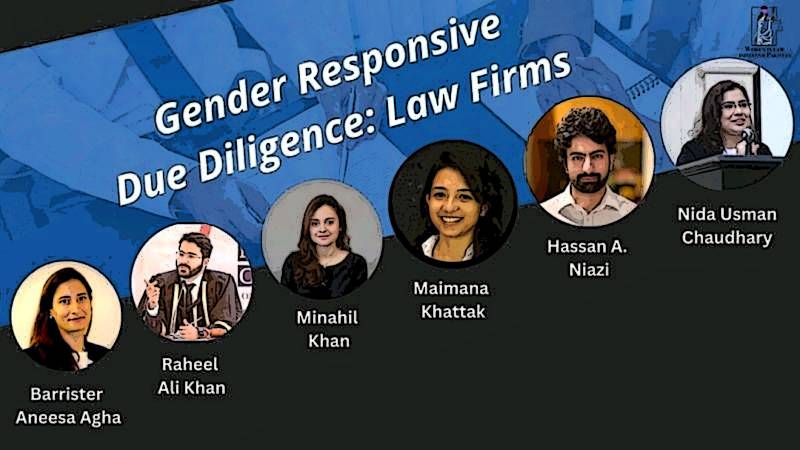
On September 2 2023, Women In Law hosted a space on social media site 'X' discussing gender responsive due diligence in law firms.
This concept was explored in more detail in a space we held on this platform on September 2, 2023. It can be accessed here: https://t.co/gQOLut5QBA
— Nida Usman Ch (@NidaUsmanCh) October 13, 2023
(starts after 2 minutes 35 seconds).
Explaining the concept as an unexplored area in Pakistan, founder of Women In Law Nida Usman Chaudhary stated that "Gender Responsive Due Diligence is an emerging concept which takes HR due diligence further by adding gender lens however, unlike HRDD, GRDD need not always be intrinsic and may involve external evaluations on part of employees or clients etc in their dealings with businesses."
"One of the major observations of the participants in the space was about how we needed to focus on the next gen of lawyers & law students to create awareness about these standards as older generations had internalised behaviours already showing little or no inclination to reform...
We understand that at this point, not many firms may qualify as being gender responsive as per this but we hope that this can speak to future and steer progress in that direction," added Chaudhary. She also shared an open source toolkit which included a checklist.
This #Checklist is being available as an open source toolkit by us and we welcome feedback on it. We understand that at this point, not many firms may qualify as being gender responsive as per this but we hope that this can speak to future and steer progress in that direction. pic.twitter.com/qX4xVywDWy
— Nida Usman Ch (@NidaUsmanCh) October 13, 2023
She also shared a text format of the discussion which included the following questions that law firms ought to be asking themselves:
- Can law firms be considered a business enterprise under BHR framework?
- What is Gender Responsive Due Diligence and what all does it entail? If law firms
are avenues of formal employment, what sort of HR policies should they have? - Who should regulate law firms to ensure they adopt better HR policies? What
should the objective of regulating law firms be: exercise of control and assertion
of authority or mainstreaming of rights of clients, staff and employees? - Can there be an alternative to regulation in form of voluntary codes, guidelines
and other industry/client based responses? - Can ministries or NAP on BHR take any conscious step to clarify the ambit of the
principles and their application in context of law firms?


